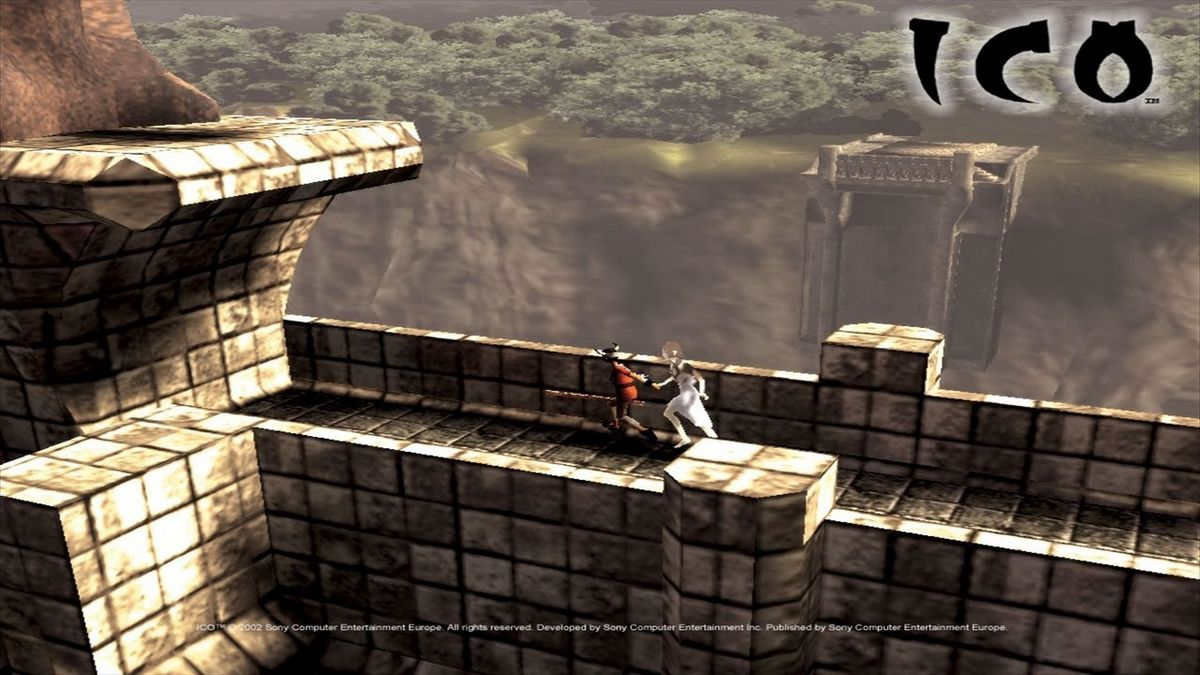In recent years, the gaming industry has witnessed a significant shift towards blockchain technology. One of the most important developments in this realm is the emergence of game ICOs. Game ICOs are essentially fundraising campaigns that aim to finance new video games or related platforms using cryptocurrency tokens. These tokens can be bought and sold on various crypto exchanges, and they offer investors specific benefits such as early access to games, exclusive game features, or in-game assets. The concept of game ICOs has opened up a whole new world of financing opportunities for developers who want to create innovative titles but lack traditional funding sources like venture capital firms or publishers. In this article, we will explore how game ICOs work, their potential benefits and risks for developers and players alike, and what the future holds for this exciting trend at the intersection of gaming and blockchain technologies.
- Introduction to Game ICOs: A Comprehensive Overview
- The Pros and Cons of Investing in Game ICOs
- Understanding the Technical Aspects of Game ICOs: Smart Contracts, Tokenization, and Blockchain Technology
- How to Conduct Due Diligence on a Potential Game ICO Investment
- Case Study Analysis: Successful vs Unsuccessful Game ICO Launches
- Regulatory Landscape for Game ICOs: Navigating Complex Legal Frameworks Across Jurisdictions
- Future Trends in the Gaming Industry and their Impact on Game ICO Investments
- Expert Opinions and Insights into the Future Outlook for game ICO investments
Introduction to Game ICOs: A Comprehensive Overview
In recent years, the gaming industry has also started utilizing this innovative financing mechanism to raise funds for developing new games or expanding existing ones. Game ICOs are essentially crowdfunding campaigns that allow game developers to sell digital assets or tokens in exchange for cryptocurrency such as Bitcoin or Ethereum.
Game ICOs offer several advantages over traditional funding methods like venture capital investments or publisher deals. Firstly, they provide developers with more control over their projects by allowing them to retain ownership and decision-making power. Secondly, they enable developers to tap into a global pool of investors without geographical restrictions. Lastly, game tokens sold during an ICO can be used within the game environment itself, offering players greater incentives and value than traditional in-game currencies.
However, it’s important to note that game ICOs also come with significant risks and regulatory challenges due to the absence of clear guidelines from government bodies around the world. As such, potential investors must conduct thorough research on each project before investing any funds. Despite these challenges, game ICOs show great promise as an effective means of raising capital for gaming ventures while creating more engaging experiences for players through tokenized rewards systems – ushering in a new era of innovation in video games development funded by communities rather than large corporations or publishers alone.
The Pros and Cons of Investing in Game ICOs
There are many advantages and disadvantages associated with investing in game ICOs.
One of the main benefits of investing in game ICOs is that they offer diversification for those who wish to invest outside traditional markets. Game investments can also provide high returns on investment as successful games can generate significant profits. Additionally, game ICOs often involve community involvement which can enhance transparency and create a sense of belonging among investors.
However, there are also drawbacks associated with investing in game ICOs. The volatile nature of cryptocurrency markets means that there is always a risk involved when investing. Furthermore, fraudulent schemes related to some gaming projects have led to substantial losses for investors. Moreover, gaming is an extremely competitive industry where success depends largely on user adoption and popularity – factors that cannot be easily predicted or controlled by investors.
In conclusion, while game ICOs may seem like an attractive investment option due to their potential profitability and innovation within the gaming industry space, it’s crucial for potential investors to conduct thorough research before making any decisions regarding their investment portfolio.
Understanding the Technical Aspects of Game ICOs: Smart Contracts, Tokenization, and Blockchain Technology
Understanding the technical aspects of game ICOs is crucial for anyone looking to invest or develop one themselves. One key aspect is smart contracts, which allow for automated transactions without intermediaries and ensure transparency and security throughout the process. These contracts can also be programmed to distribute tokens based on specific criteria such as completing certain levels or achieving high scores.
Tokenization is another important element of game ICOs, allowing developers to create their own cryptocurrency that represents ownership or access rights within a game ecosystem. Tokens can be used for things like purchasing items, accessing exclusive content, or even voting on future development decisions.
Blockchain technology underpins everything in a game ICO by providing an immutable ledger where all transactions are recorded securely. This ensures trust between players and developers while also enabling decentralization and eliminating the need for centralized servers that could potentially be vulnerable to hacking attempts.
In summary, understanding the technical aspects of game ICOs involves knowledge of smart contracts, tokenization, and blockchain technology. By leveraging these tools effectively, it’s possible to create innovative gaming experiences with added value for both players and investors alike.

How to Conduct Due Diligence on a Potential Game ICO Investment
Due diligence involves conducting thorough research on the project, its development team, market potential, and other factors that could impact the success of the investment.
Firstly, investors should investigate the game ICO’s whitepaper carefully. The whitepaper outlines the concept of the project and how it intends to use blockchain technology. It also provides information about token distribution and allocation as well as details on how funds will be used for development purposes.
Secondly, investors must evaluate the team behind the project. This includes analyzing their experience in developing games as well as their knowledge of blockchain technology. It’s important to verify whether they have successfully completed similar projects in the past or not.
Another crucial aspect that needs attention while conducting due diligence on a potential game ICO investment is examining its market potential thoroughly. Investors need to analyze if there are enough users interested in playing this type of game or not and what kind of competition exists within this space.
Finally, an investor must examine where an ICO stands regarding compliance with regulations set forth by governing bodies such as SEC (Securities Exchange Commission). The legal standing can dictate whether or not a particular ICO has any chance at long-term viability.
In conclusion, when conducting due diligence on a potential game-based Initial Coin Offering (ICO) investment one must take into account all aspects including researching various components such as whitepapers thoroughly while evaluating teams behind them who are looking out for opportunities towards growing user base through innovation & creativity which distinguishes themselves from competitors alongside ensuring regulatory compliances are being met before making any investments decisions .

Case Study Analysis: Successful vs Unsuccessful Game ICO Launches
Firstly, it is imperative to evaluate the level of interest and engagement from potential investors during the pre-sale phase. A successful launch will typically see a high number of interested parties, as well as substantial contributions during this phase.
Additionally, effective marketing strategies leading up to the ICO can play a critical role in its success. This includes utilizing various social media channels, creating engaging content that speaks directly to target audiences, and collaborating with influential figures within the gaming industry.
Another important factor is transparency throughout the entire process; investors need reassurance that their funds are being used wisely and ethically. Having a clear roadmap outlining project milestones accompanied by regular progress reports helps build trust amongst stakeholders.
On the other hand, unsuccessful game ICO launches often face obstacles such as lackluster marketing efforts, weak partnerships or collaborations within gaming communities and a lack of transparency surrounding project development. Furthermore, poor timing can also contribute to low investor participation rates if there is already an oversaturation in similar markets.
Ultimately it takes careful planning along with thoughtful execution when launching a game ICO for any startup company venturing into this space. By addressing these key factors upfront companies can set themselves on path towards achieving their desired crowdfunding goals while building credibility among potential investors looking for next big game innovation opportunity they want invest in!
Regulatory Landscape for Game ICOs: Navigating Complex Legal Frameworks Across Jurisdictions
The regulatory landscape for game ICOs is complex, as it involves navigating legal frameworks across multiple jurisdictions. The main challenge faced by game ICOs is determining which laws apply and how to comply with them.
Regulation of game ICOs varies greatly from country to country. In some countries, such as China, all types of ICOs have been banned altogether. Other countries have taken a more permissive approach, allowing certain types of token sales but imposing strict regulations on others.
One issue that often arises in the context of game ICOs is whether the tokens being sold constitute securities under applicable law. If so, they may be subject to registration and prospectus requirements that can be both time-consuming and costly. Furthermore, if tokens are deemed to be securities then they must comply with anti-fraud rules.

Navigating this complex legal framework requires expertise in both blockchain technology and securities regulation across various jurisdictions worldwide. Game developers who seek to launch an ICO must undertake careful due diligence before launching their project in order ensure compliance with local legislation.
Future Trends in the Gaming Industry and their Impact on Game ICO Investments
These innovations are expected to transform the gaming industry in unprecedented ways, creating new opportunities for game developers and investors alike.
One of the most significant trends in the gaming industry is blockchain technology. Blockchain-based games offer enhanced security features that protect players’ assets from fraudsters while also providing transparency regarding transactions. This trend has led to an increase in game ICO investments; more companies are launching their own tokens using blockchain technology to fundraise capital.

Another trend that is gaining momentum in the gaming industry is cloud-based gaming platforms like Stadia developed by Google or Luna created by Amazon. Cloud-based platforms allow players to stream games directly onto their devices without having to download them first, making it easier for people who do not have high-end hardware or consoles to play popular titles.
Lastly, we can see a surge of cross-platform games which can be played on multiple devices regardless of platform restrictions. Cross-platform games enable developers and publishers alike greater access into previously untapped audiences; this could result in higher profits for both parties involved.
Overall these trends within the gaming world stand out as essential points for consideration when looking towards investing your resources into either specific game developments or broader crypto-ICO launches related explicitly around innovative uses within entertainment libraries.
Expert Opinions and Insights into the Future Outlook for game ICO investments
Experts believe that game ICOs have the potential to revolutionize the way users interact with games by providing a decentralized platform that enables players to own in-game assets and monetize their gaming experience.
As more people shift towards online gaming, there is an increasing demand for secure, transparent, and equitable platforms. Game ICOs can address these concerns by leveraging blockchain technology to provide a decentralized system that offers transparency, security, and fairness in gameplay.
Additionally, experts suggest that game developers can use game ICOs as a means of raising capital without having to rely on traditional funding methods. This opens up more opportunities for small-scale developers who may not have access to venture capitalists or other forms of investment.
Overall, experts anticipate significant growth in the game ICO market as more investors recognize its potential benefits. However, it is essential always to conduct thorough research before investing in any project since cryptocurrency investments are still subject to volatility and risk factors inherent in emerging markets.
In conclusion, the concept of game ICOs is a promising new development in the gaming industry. It offers an innovative way for developers to raise funds and gain support from their community while also giving players an opportunity to invest in games they believe in.
However, as with any investment opportunity, there are risks involved. Game ICOs are not regulated by financial authorities and lack clear guidelines on investors’ rights and responsibilities. Therefore, it is crucial that both developers and investors do thorough research before participating in a game ICO.
Furthermore, developers must ensure that their game concepts have market viability and can deliver on promises made in whitepapers before launching an ICO. Investors should look at the team behind the project, their experience in the field, and how transparent they are about project timelines.
Overall, game ICOs hold great potential for disrupting traditional funding models within gaming but require careful consideration from all parties involved to ensure success.
Read More:- Experience the Thrill of Building Your Empire with Capitalism II Game – Get it Now!.
- Discover the wild adventures of Game Madagascar – the ultimate gaming experience!.
- Experience the Ultimate Rhythm Fun with Hatsune Miku: Project Mirai DX Game!.
- Get in the Action with Act of War: Direct – A Thrilling Game Experience! (69 characters).
- Master the galaxy and dominate space with Homeworld 2 game – Play now!.
- Join the Interdimensional Adventure with Ratchet & Clank: Rift Apart – A New Gaming Experience!.
- Join the Battle: Experience High-Octane Action with Warframe Game.